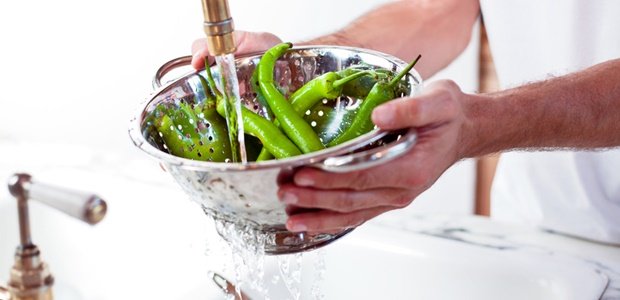Unless you’ve been living under a rather large rock, you’ll know the severity of the water crisis in the Western Cape.
News24 reports that the dam levels are at a crucial low and “this crucial low means that dam storage will be at 13.5%. This is when the city will turn off most taps, leaving only vital services with access to water.”
Doesn’t paint a pretty picture, does it?
Local Cape Town chef and owner of Saucisse Deli, Amanda Lewis, is on a mission to get other restaurants and establishments to do all they possibly can to save water.
Here are her tips below!
1. Use biodegradable cleaning products
To start you off on your greener water savvy ways the first thing you need to tick off the list is your choice of cleaning products. I cannot emphasize enough how important using only biodegradable cleaning products are. It is safer for your reuse of grey water, the environment and most importantly your customers. There are multiple local companies producing fantastic cleaning products that are aimed at the restaurant industry so no excuses there.
2. Water bucket system for the win!
Next up is a no-brainer, switch to a water bucket system in the scullery section of your kitchen, I like to use different buckets to separate the crockery, cutlery, and glasses. This will half your cleaning time as the pre-soak will remove most of the dirt.
3. Offer alternative protein options
Look at the bigger picture, start approaching your protein choices on your menu with more of a sustainable viewpoint. Try reduce beef options where possible and replace it with more water-friendly farming methods. Switch beef out for game and venison or start exploring the realm of vegan and more veggie options on the menu.
4. Embrace Meat-free Monday
An easy way to start experimenting with a greener menu is to incorporate the meat-free Monday policy into your daily specials. Many South African restaurants have already partnered with GreenMondaySA and offer a vegan-only special menu on Mondays. This is also a worldwide movement so don’t miss the train on this one.
ALSO READ: Food vs water: Where is the Cape’s water really going?
5. Don’t throw away that water in the ice bucket!
If your restaurant can do away with ice then go for it, If not then try to save all the water from melted ice buckets and reuse for watering restaurants plants or add it to your pre-soak water buckets in the scullery.
6. Know how your suppliers are working
Keeping your products local and understanding what methods your producer or farmer is using to get those goods into your kitchen. Make sure they are being responsible about water use during the farming and productions of products. We as chefs are the gatekeepers of mass orders so if we only demand good, healthy, sustainable products from our farmers then hopefully we can force a change in the industry.
7. Re-look your cooking methods
Think wisely about your cooking methods in the kitchen, replace steaming with boiling and even think of creative ways in which you can pre-plan the reuse of water from certain dishes. Using the steam water for stock bases or adding warm water used into your pre-soak dish mix.
8. Make sure you only use your washing machine when it is at max capacity
Gone are the days of wasteful quick jet cleaning in the dishwasher for one container. Chefs can get lazy, so start thinking smart with the reuse of pans and trays before we chuck them in the scullery.
9. Don’t defrost in gallons of water
My absolute worst water wasting trait that I see in the kitchen all over is defrosting products in large sinks filled to the brim with water. Again all it takes is a little bit of pre-planning and we can avoid silly quick fixes like this. Start working with more fresh products or add defrosting to your evening prep for the next day.
10. Table to Bin
To round up these helpful tips I must finish off with one final plea, let’s start rethinking our approach towards food! It can no longer just be about Farm to Table, the thought process must continue onto Table to Bin. Recycling, creating straw-free policies and upcycling food waste are all goals that restaurateurs must aim for in order for the industry to continue to be more sustained for our environment as well as our customers.
ALSO READ:
Top Western Cape chefs challenged to create a menu with no water
Can you survive on 50 Litres of water a day? Here’s how to try

